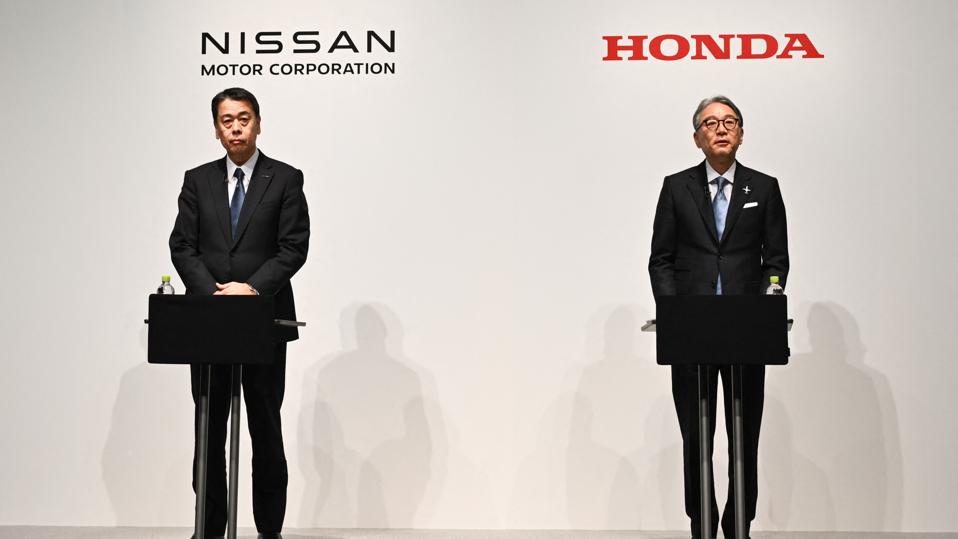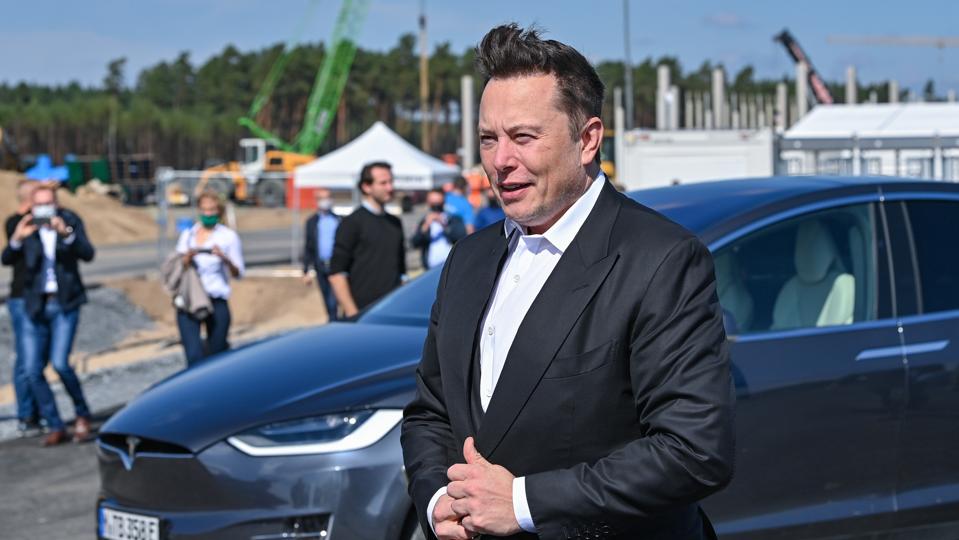Japanese automakers Honda and Nissan announced on Thursday that they have ended discussions on a merger that would have created one of the largest automakers in the world after the two companies failed to reach an agreement on the structure of the deal.

Honda and Nissan called off talks for a merger that was first announced is December.
AFP via Getty Images
Key Takeaways
- Both companies issued statements announcing the termination of the talks and said the decision was made to “prioritize speed of decision-making and execution of business measures” in a market that is being shaken by electric vehicles.
- The statements pointed to a key disagreement between the two automakers over Honda’s proposal to change the structure of the deal, which was first announced in December.
- Instead of establishing a joint holding company, Honda’s changed proposal called for Nissan to become its subsidiary “through a share exchange.”
- Despite calling off the merger, the companies said they still intend to collaborate under a strategic partnership “aimed at the era of intelligence and electrified vehicles,” which was first announced in March last year.
How Have The Markets Reacted To The Merger Cancellation?
The price of Honda Motors’ Tokyo Stock Exchange-listed shares rose 2.14% to $9.30 (¥1,434) on Thursday, while Nissan’s shares fell to $2.70 (¥415), down 0.35%.
What About Mitsubishi?
Mitsubishi, in which Nissan is the largest shareholder with a 24% stake, announced in December that it had agreed with both Honda and Nissan to explore the possibility of participating or being involved in the merger. However, following Thursday’s announcement, Mitsubishi said it has also agreed to terminate its memorandum of understanding with the two companies “regarding the consideration of the structure for a tripartite collaboration.” However, like the other two automakers, Mitsubishi intends to collaborate under a EV and self-driving vehicle—focused “strategic partnership.”
Key Background
The merger talks were first reported in mid-December and confirmed by the two companies a week later. According to Nikkei, increased pressure in the EV market from competitors like Tesla and Chinese carmakers like BYD has been a key driving force behind the deal. The merger talks, however, stagnated quickly as Honda expressed concerns about Nissan’s financial health. In the first half the ongoing financial year for Nissan, the company reported a 94% drop in net income. When Nissan reportedly failed to present a turnaround plan, Honda offered to alter the deal and acquire the company instead—a move Nissan strongly opposed.
Look back on the week that was with hand-picked articles from Australia and around the world. Sign up to the Forbes Australia newsletter here or become a member here.


